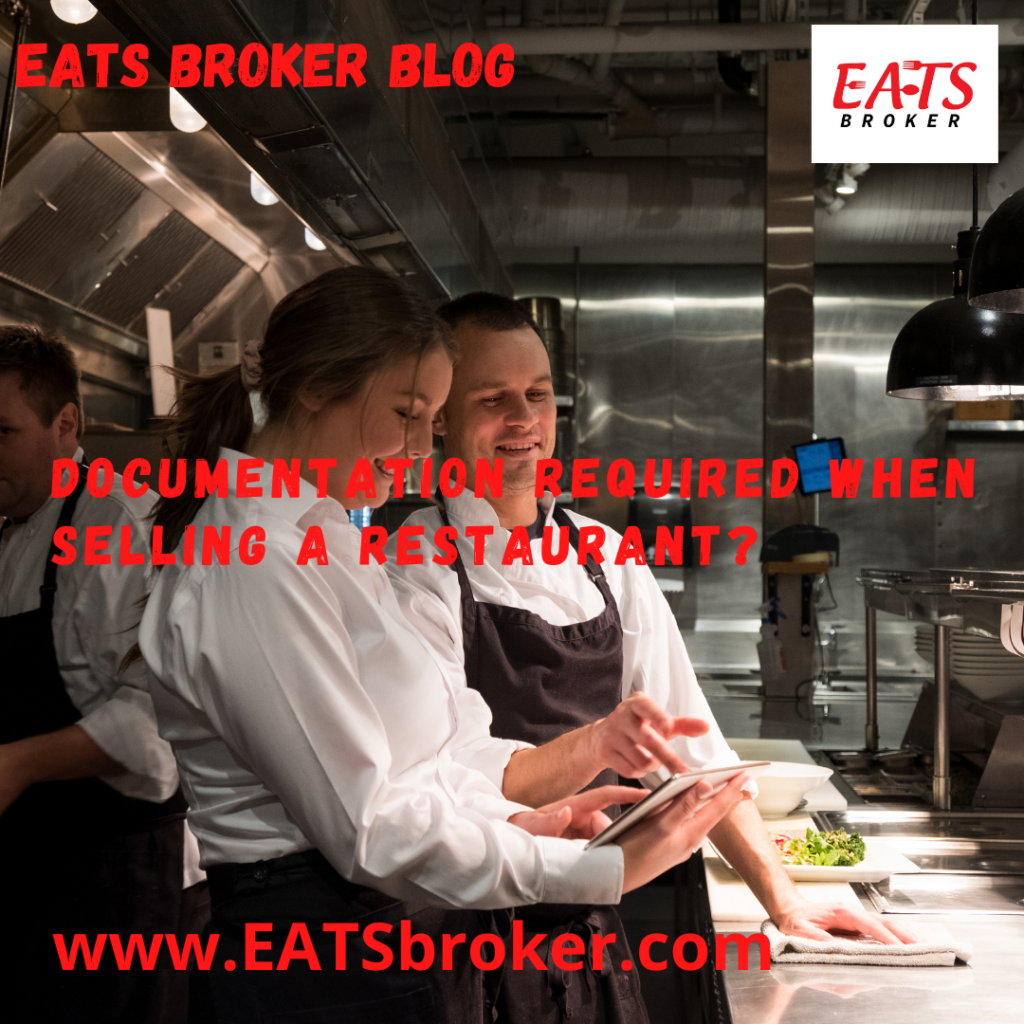The Documentation required when selling a restaurant can depend on several factors. Once the buyer’s offer is accepted, the restaurant owner starts to think about how to complete due diligence. This essential step involves the buyer examining the restaurant documentation to determine the value, goodwill, intellectual property, and condition of furniture fixtures and equipment.
Every pie looks delicious on the outside. The difference is that once you find out the ingredients and taste it, most don’t pass the test. The due diligence phase when selling a restaurant business could be compared to providing the ingredients or Documentation for a delicious pie filling. The buyer will focus on several Documents to determine if the restaurant valuation is supported and verified.
Texas Restaurant Broker Dominique Maddox of EATS Broker says the due diligence process is the glue to the deal closing. Accurate restaurant valuations, organized books, and records help the process of selling a restaurant make it to the closing table.
The Restaurant Business Broker at EATS Broker provides a cheat sheet for a successful due diligence process in this restaurant blog. The restaurant sales process will include the following phases:
Show Me the Money (Financial Records)- the buyer will want to review the financial numbers, examine them, and verify them. The financials the buyer might request include
- 2-3 Years of Tax Returns
- Balance Sheets
- 2-3 Years of Profit and Loss Statements
- Detailed Financial Statements
- One year of Sales Tax Filings
- One year of POS Sales Numbers
- Bank Statements
- Royalty Sales Report (Franchise Restaurants only)
Show me the Assets and liabilities. During this phase, it is time for the restaurant owners to let buyers know what they will receive with the sales transaction.
- Inventory List-includes all furniture and equipment owned by the restaurant owner. This list should include something other than what the landlord owns or attached to the building.
- Commercial Lease Agreement and any amendments
- Vendor Lease Agreements
- License agreements and permits required for the operation of the restaurant
- Franchise Agreements
- Payroll records
- Labor agreements
Show me the Red Flags if any
- Health Inspections
- UCC Liens
- Past or ongoing Lawsuits
- Compliance Issues
- Sales Tax Clearance certificates
Buyers and sellers can navigate these steps efficiently and confidently by working with an experienced restaurant broker. Let me know if you need help with your next restaurant transaction!
For more information on the restaurant market and other available consulting services or a complimentary restaurant valuation, contact Restaurant Business Broker Dominique Maddox at 404-993-4448 or email at [email protected]. Visit our website at www.EATSbroker.com


